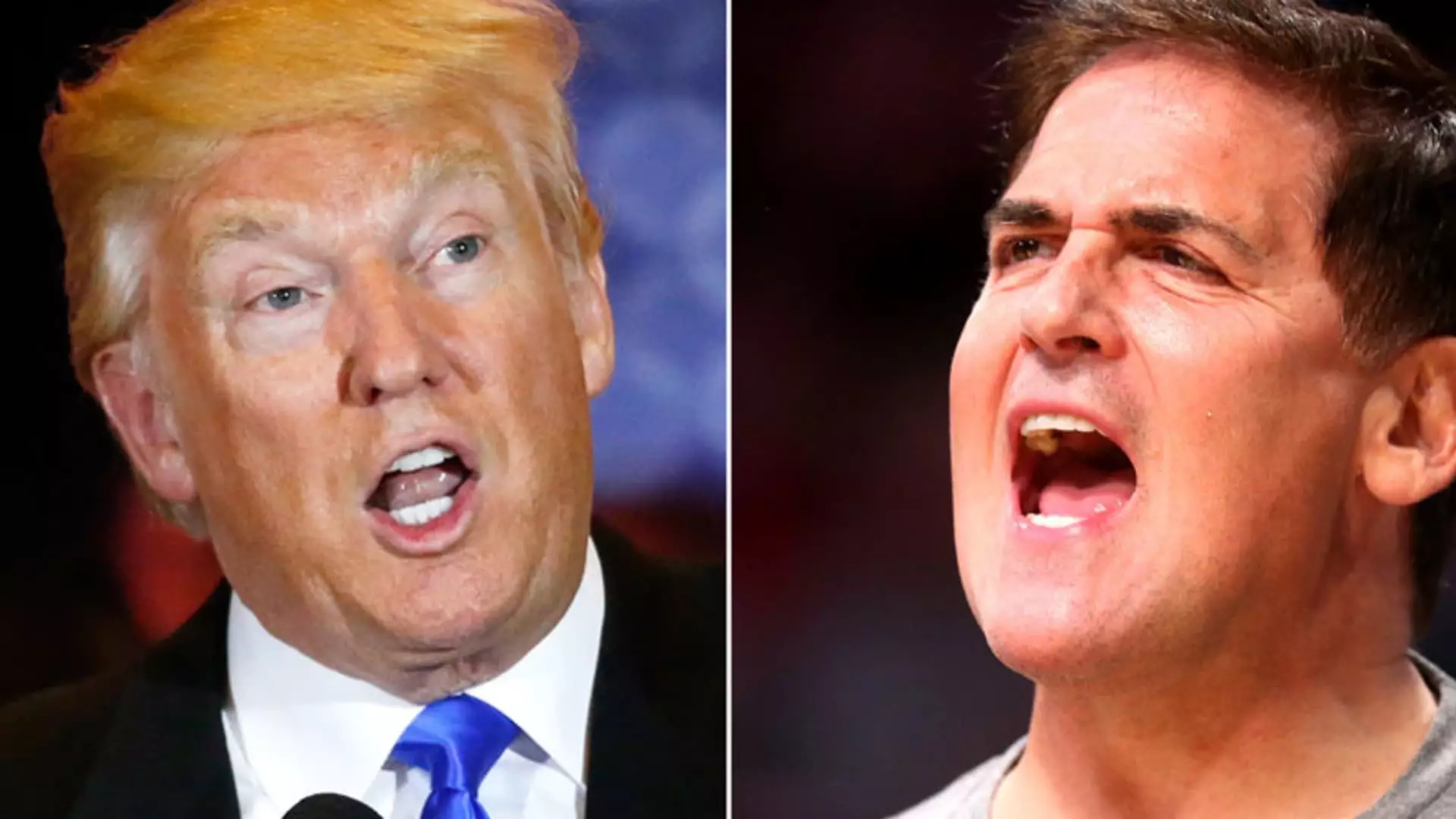The political landscape has always been characterized by rivalries, but the recent feud between Donald Trump and Mark Cuban showcases how personal dynamics can shift rapidly in the realm of high-stakes politics. In a scathing Truth Social post, Trump labeled Cuban a “Loser,” accusing him of being a “weak and pathetic bully.” This attack comes on the heels of Cuban’s criticisms directed towards Trump’s tariff proposals, highlighting the frailty of alliances in the political arena.
Cuban, once a vocal supporter of Trump back in 2015, illustrated how drastically opinions can change over time. During that period, the billionaire investor characterized Trump as the “best thing to happen to politics,” a sentiment that now feels like a distant memory. As Cuban’s public endorsement of Kamala Harris reveals, the endorsement landscape is dynamic, deeply influenced by personal beliefs and political objectives. The transition from ally to adversary serves as a reminder that loyalties in business and politics can be fleeting.
Trump’s proposed tariffs have long been a source of contention and are currently receiving renewed scrutiny thanks to Cuban. The ex-President’s plan includes a sweeping 20% universal tariff on all imports and a staggering 60% on Chinese goods. Though framed as a move to bolster American manufacturing, critics argue that such tariffs would place the financial burden squarely on consumers and importers rather than foreign suppliers. Cuban’s mocking statement—that Trump believes China pays the tariffs—illuminates a critical misunderstanding of economic policy, further emphasizing Cuban’s position as a vocal critic rather than an ally.
The ongoing debate intensifies as economists express alarm over the implications of such a hardline approach. The operational realities of international trade dictate that tariffs rarely impact the countries imposing them but rather the domestic consumers in those countries. This mismatch between Trump’s intentions and practical outcomes lays groundwork for continued conflict and debate on U.S. trade policies moving forward.
Cuban’s evolution from supporting Trump to actively opposing him is indicative of broader political trends wherein endorsements are closely tied to policy success and public sentiment. As Cuban aligns himself with Harris, he positions himself not just as a critic but as an active advocate for a pro-growth capitalist agenda. Such a shift emphasizes the increasing importance of economic rhetoric within political narratives, particularly in an election cycle grappling with economic recovery post-pandemic.
Simultaneously, Trump’s relationship with Cuban underscores the impact individual perceptions have on public personas. Enlisting other billionaires like Elon Musk, Trump’s team seeks to cultivate new alliances amidst an increasingly competitive landscape. This blending of business and politics elucidates the changing nature of endorsements—it’s no longer merely about support; it’s about influences and strategic advantages.
As we further delve into this rivalry, it becomes clear that the battle between Trump and Cuban is more than personal; it is a game of chess where the moves are calculated, and the players are highly aware of their visibility and impact. Cuban’s possible ambitions for a governmental role hint at the potential for further friction as political aspirations clash with the existing power dynamics.
The feud between Trump and Cuban sheds light on the complexities of modern political rivalry, highlighting how economic policies and personal relationships intertwine in shaping the public narrative. As the 2024 election cycle approaches, this dynamic will undoubtedly evolve, with both billionaires seeking to redefine their political legacies in a landscape that is anything but predictable.

